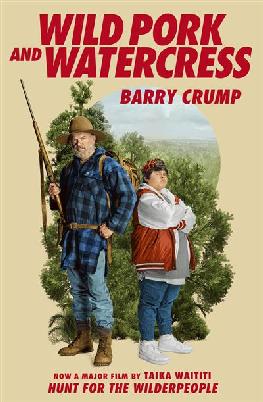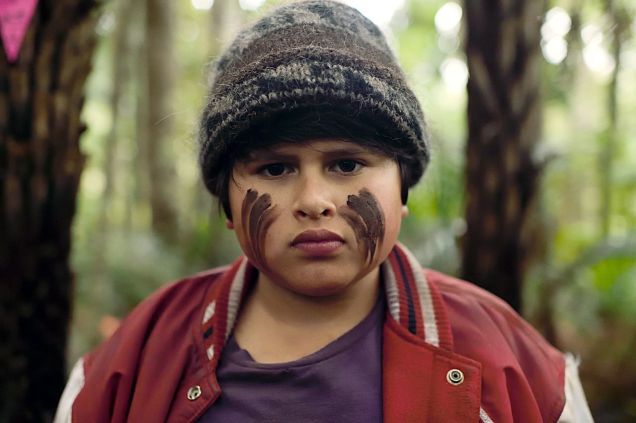Last week I was lucky enough to attend the red carpet premiere of Taika Waititi's new film, Hunt for the Wilderpeople.
The film is based on the 1986 novel Wild pork and watercress by legendary literary kiwi bloke, Barry Crump (though recently his ex-wife has revealed that she had a hand in outlining the story).
So how was the movie, and how does it differ from the book?
I found Hunt for the Wilderpeople a delight from beginning to end. It's a distinctly Kiwi film that features a raft of idiosyncratic characters but which centres on the relationship between an irascible older man and a Māori boy. It's not so much a film in the vein of "a man alone" as "a man not quite as alone as he'd like to be".
Needless to say "hijinks ensue". There are chases, gunplay and eventually grudging respect. If you can imagine a cop "buddy" movie but set in the Ureweras instead of downtown Los Angeles, you'll start to get an idea of the dynamic and humour. There are also some notable and hilarious cameos.
But it's not all played for laughs. One of the things I've always enjoyed about Waititi's films is the way that he reveals the very human vulnerabilities of his characters - whether it's a neglected Māori boy, a socially awkward couple, or a centuries old vampire - they all have fears, hopes, and insecurities.
In Hunt for the Wilderpeople we slowly get under the skin of taciturn bushman, Uncle Hec (played by the always excellent Sam Neill), and gangsta-wannabe Ricky Baker (played with charm and humour by newcomer Julian Dennison) and we find, despite their obvious differences, that there's a whole lot of heart and genuine warmth there.
Hunt for the Wilderpeople is probably in my top five movies of the last couple of years and I'm even considering a rewatch (in a cinema - waiting for it to come out on DVD is just too long).
But is it a good adaptation of the novel? Well, it differs a lot from the book and Waititi has gone on record as saying that he wanted to create a film that was "in the spirit" of the novel rather than being a straight adaption.
 Updating the novel for a modern audience has meant certain changes - cellphones and selfies were certainly not a thing in the eighties when Crump was writing it. In addition the ending of the movie is a tad more upbeat than that of the source novel, and there's less of a focus on bushcraft and more of a focus on comedy, all of which makes the movie a more enjoyable experience for me than if it had stuck to the straight and narrow.
Updating the novel for a modern audience has meant certain changes - cellphones and selfies were certainly not a thing in the eighties when Crump was writing it. In addition the ending of the movie is a tad more upbeat than that of the source novel, and there's less of a focus on bushcraft and more of a focus on comedy, all of which makes the movie a more enjoyable experience for me than if it had stuck to the straight and narrow.
But if you're curious, the novel has been rereleased to with a movie tie-in edition and we've got copies of this just ripe for your reserves list (as well as a downloadable eBook version).






Add a comment to: Review: Hunt for the Wilderpeople